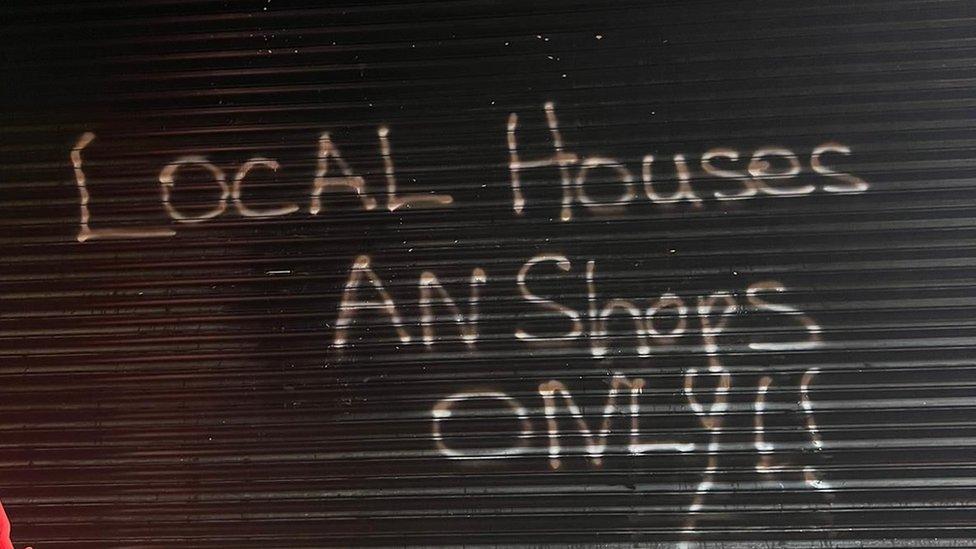Why has there been a spike in racist attacks in south Belfast?
- Published
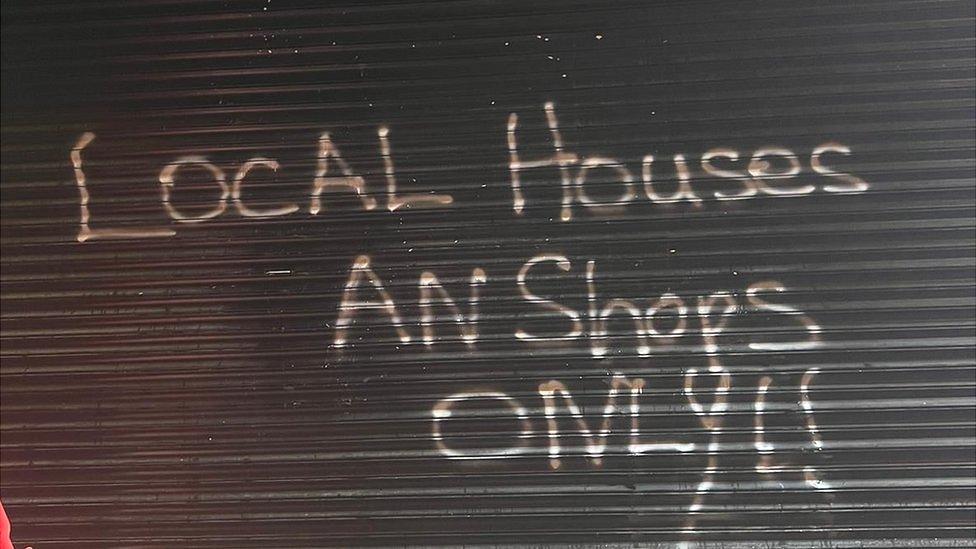
Racist graffiti was sprayed on a shop's shutters on Donegall Road last month
Police in south Belfast have said dealing with racist hate crime is a "significant priority".
The comments come after a spate of such crimes in the south of the city that saw ethnic minority-owned businesses attacked.
A Policing and Community Safety Partnership (PCSP) meeting was also held to mark hate crime awareness week.
Supt Finola Dornan said an action plan has been put in place after a spike in attacks in the last six months.
It includes putting more police on the ground, and contact with victims to provide support to them.
Speaking to BBC News NI, Supt Dornan said: "This is a significant priority for local police. We care about this and we want to get it right.
"South Belfast is one of the most diverse places in Northern Ireland and that's something that is its key strength. It does create a vulnerability then of increased occurrences."
Despite a rise in crimes, Supt Dornan is hesitant to tar all residents with the same brush.
"From a policing perspective, I'd be really cautious about characterising an entire community as racist because certainly in terms of the response we've had from the local community - they're as appalled by these incidents as any of us are who are here today."
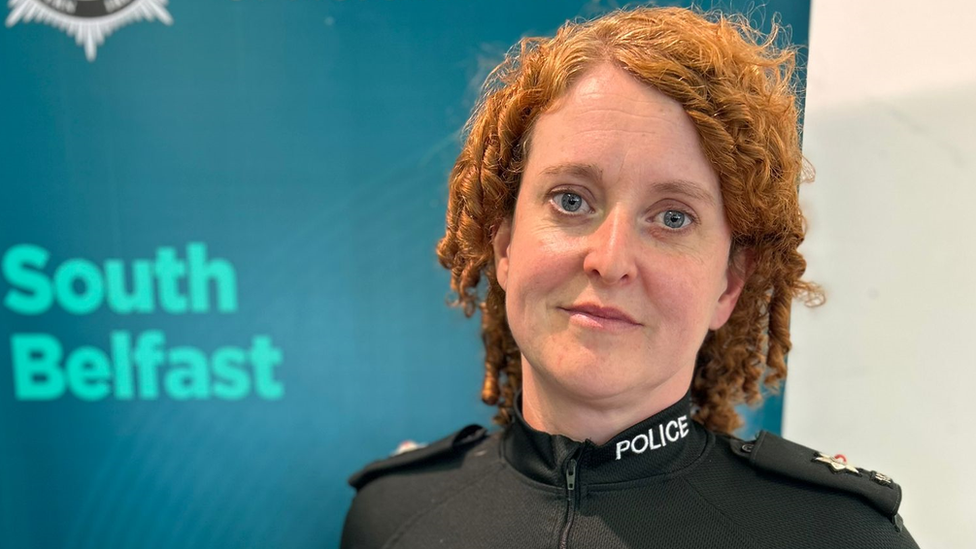
Supt Finola Dornan said the police have put an action plan in place to deal with a spike in hate crimes
According to PSNI figures, there were 876 racist hate crimes in Northern Ireland last year. That was 21 down on the same period the year before.
More than half of those crimes - 446 of them - were committed in Belfast.
And figures in the city went against the grain, because that was 91 up on the previous year.
Asked if police are investigating paramilitary links to recent racially motivated attacks, Supt Dornan said: "We are satisfied that there is a degree of co-ordination in relation to these attacks and that in itself would align to organised criminality - that is a central line of inquiry for us at the moment.
"At the moment, the information that we have does not suggest there is paramilitary drive or sanction for these attacks."
'This is not acceptable'
So why has south Belfast experienced a spike in racist incidents in the past few months?
"Issues that underpin any kind of complex crime will be socio-economic, they will be health inequalities, and I think it's clear that in south Belfast we do have areas of deprivation and those types of environments do require multi-agency work to address them," Supt Dornan said.
In a message to victims, the officer said they were her "main focus".
"This is not acceptable," she said.
"Your police force is here for you. We will do everything we can to hold people to account."
Rev Dr Livingstone Thompson from the African and Caribbean Support Organisation also attended the meeting.
He said: "There is a real interest in the community on how to engage in this issue of hate crime. People want to know and I think that's an important thing - it's an opportunity to communicate.
"I'm really pleased at the effort that's being made by police, I believe they are intentional. I believe there is a real desire to make a difference."
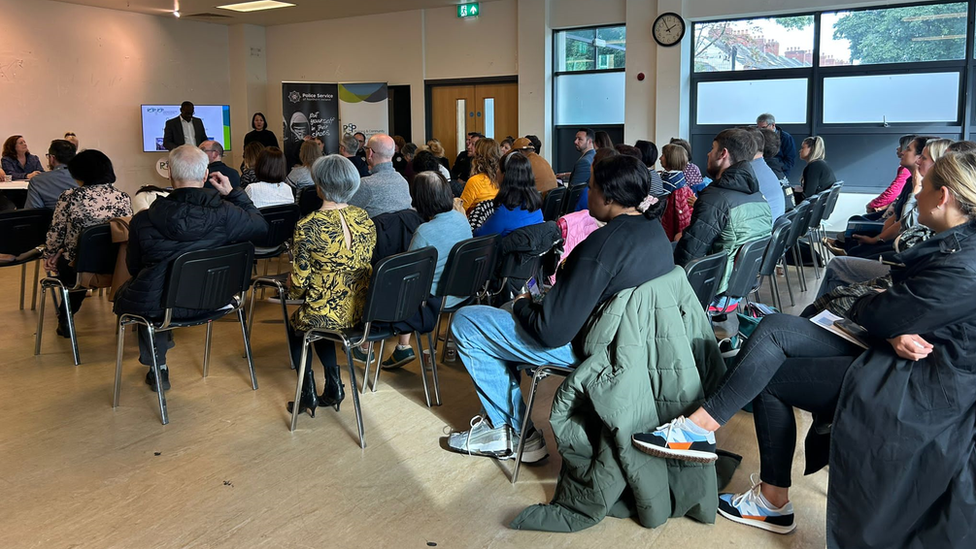
A PCSP meeting took place in south Belfast on Monday
Rev Dr Thompson notes that Belfast "is one of the more diverse sections of Northern Ireland" but he thinks many people "have not adjusted themselves to the reality of living in a diverse society - we're getting a little bit of push back".
"I believe in time it will come together but what we're seeing is people who are ill at ease and have not yet adjusted. They need to come into the modern reality of a diverse society.
"Imagine this was your brother, your sister, a member of your family. I would also appeal to politicians - there is an opportunity to make a difference in terms of how people deal and perceive this reality of diversity. Encourage it, and don't speak negatively about it."
New legislation?
Rev Dr Thompson said he believed the introduction of hate crime legislation was vital in tackling the issue.
Northern Ireland is the only part of the UK which does not have specific hate crime laws.
"I hope that Stormont really get their act together," he said.
"There are many things, not least legislation, being impacted by this delay. This society is really sitting twiddling their thumbs waiting. I think it is really a travesty."
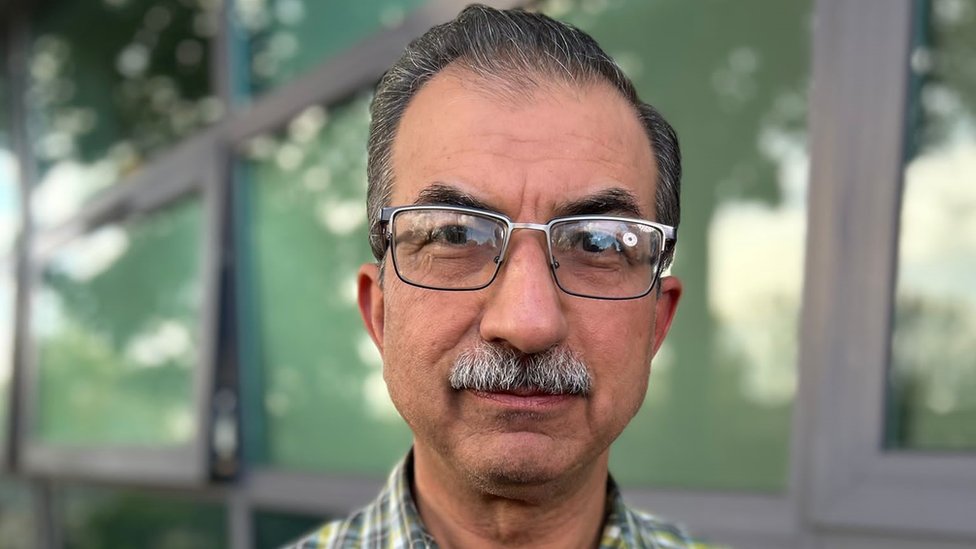
Dr Raied Al-Wazzan urged politicians to restore Stormont to help reduce hate crimes
Dr Raied Al-Wazzan is an independent member of the PCSP.
"The police are doing everything they can but they don't have the right tools - the need the hate crime legislation," he said.
"We need Stormont to come back as quickly as possible because this cannot be done without Stormont. It won't stop hate crime but it would help reduce it.
"We don't want to demonise the local people. There are lots of good people in this area. Some of those people may have information about hate crimes and we need them to come forward and let the police do their job."
A spokesperson for the Department of Justice said: "A focus for the DoJ is delivering Judge Marrinan's Independent Review of Hate Crime Legislation Report aimed at strengthening a robust response to hate crime in law.
"Work has progressed on a number of recommendations in advance of the development of a Hate Crime Bill."
- Published20 September 2023

- Published18 September 2023
